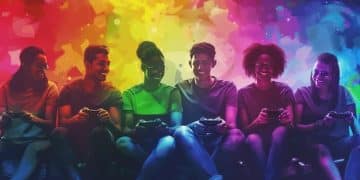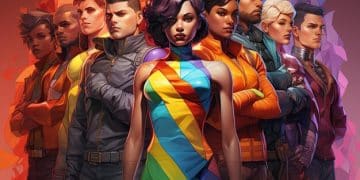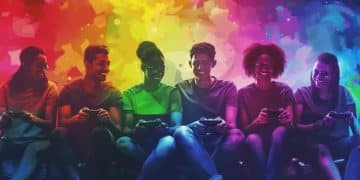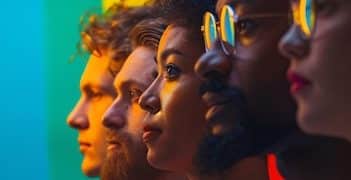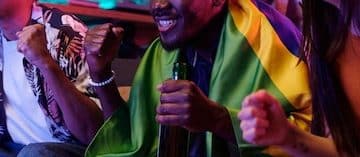Riot Games’ 2025 Initiatives: Benefits for US LGBT LoL Players
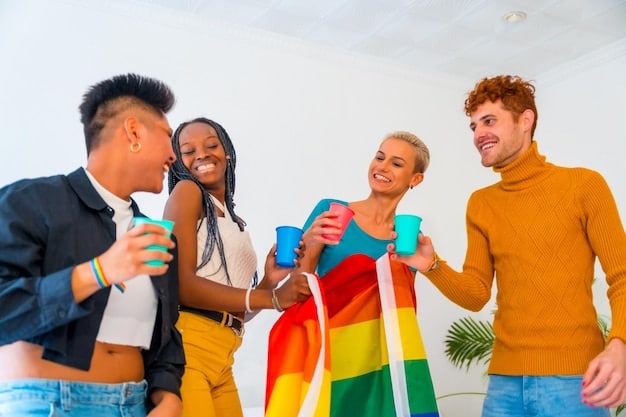
Riot Games’ upcoming 2025 diversity initiatives are poised to significantly enhance the experience for LGBT League of Legends players in the US by fostering more inclusive environments, increasing representation, and providing new support structures within the gaming community and competitive scene, addressing long-standing needs for safety and belonging.
As the digital landscape of esports continues to expand, inclusion has emerged as a crucial pillar for growth and sustainability. For LGBT League of Legends players in the US, the forthcoming diversity initiatives from Riot Games in 2025 represent a pivotal moment. These efforts seek to transcend mere cosmetic changes, aiming instead to foster deep-rooted shifts in community culture, competitive structures, and player support. The ambition is to cultivate an ecosystem where every player, regardless of identity, feels genuinely welcomed, respected, and empowered to thrive.
Understanding Riot Games’ Renewed Commitment to Diversity in 2025
Riot Games, a titan in the gaming industry, has a complex history with diversity and inclusion. While facing past challenges, the company has increasingly committed to fostering a more equitable environment. The 2025 initiatives signal a significant step forward, moving beyond reactive measures to proactive, systemic changes designed to build a truly inclusive ecosystem for all players, particularly for marginalized communities such as LGBT individuals within the burgeoning League of Legends scene. This commitment is not just about rhetoric; it’s about tangible actions and measurable outcomes.
Evolution of Diversity Initiatives in Gaming
Historically, diversity efforts in gaming often focused on token representation or surface-level acknowledgments. However, a growing understanding of intersectionality and the importance of genuine inclusion has shifted this paradigm. Modern initiatives aim to dismantle systemic barriers, empower diverse voices, and create safe spaces. Riot’s 2025 plan seems to integrate these lessons, emphasizing foundational changes rather than superficial ones.
- Increased funding for diversity-focused programs and partnerships.
- New internal structures dedicated to D&I (Diversity & Inclusion) oversight.
- Enhanced training for staff and community moderators on inclusive practices.
- Public commitments to diversity metrics and reporting.
This evolving approach reflects a broader industry trend towards recognizing the business case for diversity, alongside the ethical imperative. A more diverse player base not only broadens market reach but also enriches the competitive and social fabric of the game itself. For LGBT players, this evolution means a move from being merely tolerated toward being actively embraced and supported within the community.
Riot’s expanded focus on D&I recognizes that the player base is incredibly diverse, and the company must reflect that diversity in its practices, games, and community engagement. By setting concrete goals for 2025, Riot aims to create a more welcoming and supportive environment that encourages broader participation and retention among underrepresented groups, including LGBT gamers. This proactive stance suggests a deeper understanding of the challenges these communities face.
Enhanced In-Game Representation and Customization Options
One of the most visible and impactful ways Riot Games can support LGBT League of Legends players in the US is through enhanced in-game representation. For years, players have sought ways to express their identities within the games they love. While some progress has been made, the 2025 initiatives promise a more comprehensive and meaningful integration of LGBT themes and identities, moving beyond simple cosmetic additions to more deeply embedded elements that foster belonging and recognition.
Reflecting Diversity in Champion Designs and Lore
Authentic representation often begins with how characters are portrayed. Future champions and existing lore updates could explicitly feature LGBT characters, their relationships, and their stories, woven naturally into the vast universe of RuneTerra. This isn’t about forced inclusion but about reflecting the diversity of the real world within the game’s narrative fabric. When players see themselves reflected in their favorite champions, it creates a powerful connection and sense of validation.
- Introduction of new champions with openly LGBT identities and narratives.
- Expansion of existing champion lore to explore diverse relationships and backgrounds.
- Subtle, respectful nods to LGBT culture through character interactions and voice lines.
Beyond champions, customization options provide another avenue for expression. Imagine Pride-themed emotes, summoner icons, wards, or even champion skins that directly celebrate LGBT identities. These small, yet significant, additions allow players to visually express their pride and connect with others who share their experiences, transforming the game into a more personal and affirming space. The goal is to move beyond generic “inclusion” to specific, identifiable representation.
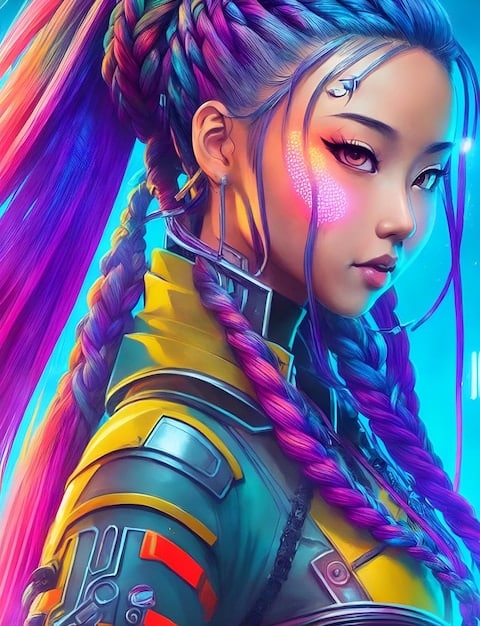
Furthermore, these in-game elements can help normalize LGBT identities within the broader gaming community, fostering greater understanding and acceptance among all players. When diversity is integrated into the very fabric of the game, it becomes part of the shared experience, potentially breaking down barriers and reducing prejudice. This move is about creating a sense of shared community where everyone can see themselves as a valuable part of the game’s narrative and competitive landscape.
Establishing Safer and More Inclusive Community Spaces
Beyond in-game features, a critical benefit for LGBT League of Legends players in the US from Riot’s 2025 initiatives involves the creation and enforcement of safer, more inclusive community spaces. Online gaming environments, particularly competitive ones like League of Legends, can often be hostile towards marginalized groups. Riot’s commitment must extend to proactive measures that combat toxicity, harassment, and discrimination, ensuring that all players can participate without fear of abuse.
Strengthening Moderation and Reporting Systems
Effective moderation is paramount. The initiatives could involve significant upgrades to Riot’s existing reporting systems, making it easier for players to report homophobic, transphobic, or other discriminatory behavior. Furthermore, the response to such reports must be swift, transparent, and consistent, sending a clear message that such behavior will not be tolerated. This might include AI-powered moderation tools for real-time flagging and intensified human oversight.
Improvements to moderation could include:
- More staff dedicated to D&I-related moderation and support.
- Faster response times to reported incidents of hate speech.
- Clearer guidelines and stricter penalties for discriminatory conduct.
- Opt-in filters for certain offensive terms or phrases.
Beyond punitive measures, fostering a positive community culture is crucial. This could involve promoting and empowering community-led initiatives focused on LGBT inclusion, such as dedicated forums, Discord servers, or in-game clubs that serve as safe havens. Riot could also host or sponsor community events that celebrate diversity, bringing players together in an affirming environment. These spaces are vital for mental well-being and fostering a sense of belonging among LGBT players, allowing them to connect without fear of judgment. The goal is a truly zero-tolerance policy for hate speech.
By creating these protected spaces and enforcing strict rules, Riot can help transform the broader League of Legends community into a more welcoming place for everyone. It signals that the company is serious about protecting its diverse player base and is willing to invest resources into making sure that the online environment is as inclusive as possible. This is a critical step towards genuine player retention and engagement for LGBT players.
Support for LGBT Esport Professionals and Grassroots Teams
While casual play is important, the competitive esports scene presents unique challenges and opportunities for LGBT League of Legends players in the US. The 2025 diversity initiatives could significantly impact professional and aspiring professional players by fostering a more equitable and supportive environment within the often intense and scrutinized world of competitive gaming. This involves addressing systemic biases and creating pathways for LGBT talent to thrive without prejudice.
Promoting Inclusivity in Professional Leagues and Team Organizations
Riot could implement new guidelines or even quotas within professional leagues (like the LCS) to encourage diversity in rosterms, coaching staff, and broadcasting teams. This might involve incentivizing organizations to adopt diversity and inclusion policies, or mandating D&I training for all professional players and staff. Visibility at the highest levels of play is incredibly powerful, inspiring younger LGBT players to pursue their dreams in esports.
Key areas of focus could include:
- Development of anti-discrimination policies specifically for pro players and teams.
- Workshops and educational programs on LGBT inclusion for esports organizations.
- Mentorship programs connecting established LGBT professionals with rising talent.
- Increased visibility for out LGBT players and shoutcasters in official broadcasts.
Furthermore, direct support for grassroots LGBT esports teams and amateur leagues could be a game-changer. This might involve providing grants, equipment, or organizational support to community-based teams, helping them gain a foothold in the competitive scene. Creating feeder systems and pathways that are explicitly inclusive allows talent to emerge from diverse backgrounds, enriching the entire ecosystem and making professional esports a more accessible career path for LGBT individuals. These initiatives could break down barriers to entry and provide vital resources.
By investing in the inclusion of LGBT individuals at all levels of competitive play, Riot Games not only supports these individuals but also strengthens the overall integrity and appeal of League of Legends esports. A more diverse pro scene reflects the global community and encourages a wider audience to engage with and support the game. This proactive approach helps build a more sustainable and equitable competitive future.
Educational Campaigns and Partnerships for Broader Awareness
Beyond internal changes and in-game adjustments, Riot Games’ 2025 diversity initiatives have the potential to drive significant positive change for LGBT League of Legends players in the US through broad educational campaigns and strategic partnerships. Raising awareness and fostering understanding among the wider player base and the general public can significantly reduce prejudice and create a more accepting gaming culture.
Collaborating with LGBT Rights Organizations
Strategic partnerships with established LGBT advocacy groups and non-profits can lend credibility and expertise to Riot’s efforts. These collaborations could lead to co-developed educational materials, awareness campaigns about common challenges faced by LGBT gamers, and fundraising initiatives for relevant causes. Such partnerships ensure that Riot’s diversity initiatives are grounded in authentic experience and contribute meaningfully to the broader fight for equality.
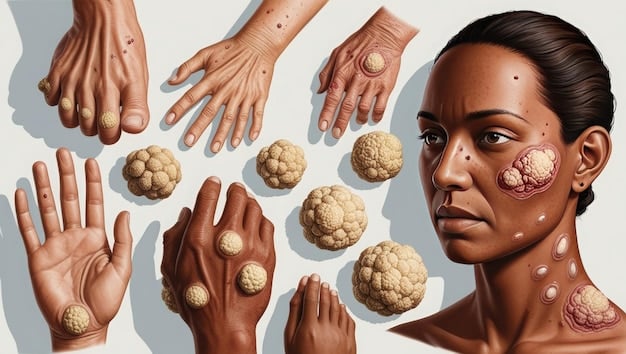
Educational content could take many forms:
- In-game messages or loading screen tips promoting inclusive language.
- Video series featuring LGBT players sharing their experiences and challenges.
- Webinars or panels discussing intersectionality in gaming, open to all players.
- Partnerships for Pride month celebrations, featuring themed events and charity drives.
These campaigns are not just about informing players; they are about shaping cultural norms within the gaming community. By actively promoting messages of acceptance, respect, and allyship, Riot can challenge harmful stereotypes and foster an environment where discriminatory behavior is not only policed but actively discouraged by the community itself. This creates a cultural shift where players become allies, fostering a more self-policing, positive environment.
Furthermore, these initiatives could extend beyond the gaming sphere, leveraging Riot’s significant platform to promote broader societal understanding of LGBT issues. This holistic approach ensures that the benefits for LGBT League of Legends players are not confined to the game itself but contribute to a more inclusive society overall. When a major company takes a stand, it influences millions of people, amplifying the message of acceptance and understanding.
Addressing Mental Health and Well-being for LGBT Players
A often-overlooked aspect of diversity initiatives, particularly for marginalized communities, is mental health and well-being. For LGBT League of Legends players in the US, navigating online spaces that can sometimes be hostile, coupled with societal pressures, can significantly impact mental health. Riot Games’ 2025 diversity initiatives present a crucial opportunity to integrate mental health support tailored to the unique needs of LGBT gamers.
This commitment might involve partnerships with mental health organizations specializing in LGBT youth and adults, providing resources directly within the gaming client or through dedicated web portals. These resources could include access to counseling services, support groups, or educational materials on coping mechanisms for online harassment and discrimination. Creating a direct and accessible support system acknowledges the specific vulnerabilities faced by this community.
Creating Safe Support Networks
Beyond professional services, fostering peer-to-peer support networks is vital. The initiatives could facilitate the creation of official or semi-official in-game groups or Discord servers specifically for LGBT players, moderated by trained individuals (perhaps from partner organizations) to ensure they remain truly safe spaces. These communities can offer a sense of belonging, reduce isolation, and provide a platform for shared experiences, which are crucial for mental well-being.
- Direct links to LGBT-affirming mental health resources within the game client.
- Sponsored “safe spaces” servers or forums where LGBT players can connect.
- Training for community moderators to identify and respond to signs of distress.
- Promotion of mental health awareness campaigns during key community events.
Riot’s role can evolve from merely developing a game to becoming a responsible steward of its community’s well-being. By proactively addressing mental health, particularly for its LGBT player base, Riot Games demonstrates a deeper level of care and commitment to the holistic welfare of its community. This goes beyond just making a game fun; it’s about making the environment truly safe and supportive for all players, acknowledging their full humanity. Prioritizing mental health demonstrates a profound understanding of community needs.
These initiatives, if implemented thoughtfully and with genuine commitment, could set a new standard for how gaming companies approach player well-being. For LGBT players, it means having not just a fun game to play, but a secure and supportive community within it, where their mental health is recognized and actively catered to. This level of comprehensive support can profoundly impact their overall gaming experience and quality of life.
Measuring Impact and Ensuring Accountability
The success of the 2025 diversity initiatives for LGBT League of Legends players in the US will ultimately hinge on Riot Games’ commitment to measuring their impact and ensuring robust accountability. Mere announcements are not enough; there must be clear metrics, transparent reporting, and mechanisms for community feedback to ensure these efforts translate into tangible, positive change. This involves moving beyond good intentions to demonstrable progress within the player base and the company itself.
Transparent Reporting and Community Feedback Loops
Riot could commit to annual or bi-annual reports detailing the progress of its diversity initiatives, including specific metrics related to LGBT inclusion. These reports might cover representation within the company, engagement levels of diverse player groups, and data on harassment incidents and their resolution. Transparency builds trust and allows the community to hold Riot accountable for its commitments, fostering a sense of shared responsibility for success.
Key accountability mechanisms:
- Regular public reporting on D&I metrics and initiative progress.
- Establishment of a dedicated D&I advisory council with diverse community representation.
- Open channels for community feedback on the effectiveness of new policies.
- Anonymous surveys to gauge LGBT player satisfaction and sense of safety.
Furthermore, establishing direct feedback loops with LGBT community leaders and advocacy groups is essential. This ensures that the initiatives remain responsive to the evolving needs and concerns of the players they aim to support. Regular check-ins, focus groups, and independent audits could provide invaluable insights, allowing Riot to adapt its strategies and address any shortcomings effectively. This iterative process is crucial for long-term success, ensuring the initiatives remain dynamic and relevant.
Ultimately, the true measure of success will be a noticeable improvement in the experiences of LGBT League of Legends players. This will manifest as a more welcoming community, a reduction in the incidence of harassment, greater visibility and representation at all levels of play, and an overall sense of belonging and safety. Riot’s commitment to accountability will demonstrate the sincerity of their efforts and determine the lasting legacy of these initiatives.
| Key Benefit | Brief Description |
|---|---|
| 🌈 Enhanced In-Game Representation | More diverse champions, lore, and customization options reflecting LGBT identities. |
| 🛡️ Safer Community Spaces | Stronger anti-harassment measures and dedicated inclusive forums. |
| 🏆 Esports Accessibility | Policies and support for LGBT professionals and grassroots teams. |
| ❤️ Mental Health Support | Resources and safe networks for LGBT players’ well-being. |
Frequently Asked Questions
Players can anticipate new champions with openly LGBT identities and narratives integrated into League of Legends lore. Additionally, more diverse character backstory expansions and subtle nods through interactions are expected, along with potential Pride-themed cosmetics like emotes, icons, or ward skins. The aim is authentic and meaningful visibility, enriching player connection.
Riot’s initiatives are likely to include stronger moderation systems, faster response times to reported discriminatory behavior, and clearer guidelines with stricter penalties for hate speech. The creation of officially supported safe spaces and forums for LGBT players will also foster a more inclusive online environment, promoting positive community norms.
Yes, the initiatives are expected to encourage greater diversity within professional team rosters, coaching, and broadcasting. This might involve D&I policies for pro organizations, mentorship programs for aspiring LGBT talent, and increased visibility for out players, aiming to create more equitable pathways in competitive League of Legends.
Riot plans to integrate mental health resources directly into the user experience, possibly through partnerships with LGBT-affirming mental health organizations. This could include access to counseling, support groups, and educational materials addressing online harassment and discrimination. The goal is to provide accessible, tailored support for well-being.
Accountability will be ensured through transparent reporting, with Riot committing to regular public updates on D&I metrics and progress. Furthermore, establishing direct feedback loops with LGBT community leaders and advocacy groups, along with anonymous player surveys, will help ensure responsiveness and ongoing development of the initiatives.
Conclusion
The anticipation for Riot Games’ 2025 diversity initiatives among LGBT League of Legends players in the US is considerable, and for good reason. These efforts represent a potentially transformative moment, promising significant benefits that extend far beyond superficial changes. From richer in-game representation and significantly safer community spaces to robust support for aspiring esports professionals and crucial mental health resources, the roadmap outlines a comprehensive approach to genuine inclusion. While the ultimate success will depend on sustained commitment and transparent accountability, these initiatives underscore a growing recognition of the diverse player base and the imperative to create an environment where every player feels seen, celebrated, and empowered to engage fully with the world of League of Legends. This strategic shift has the potential to not only benefit the LGBT community but also enrich the entire gaming ecosystem, fostering a more vibrant, respectful, and truly global community.
